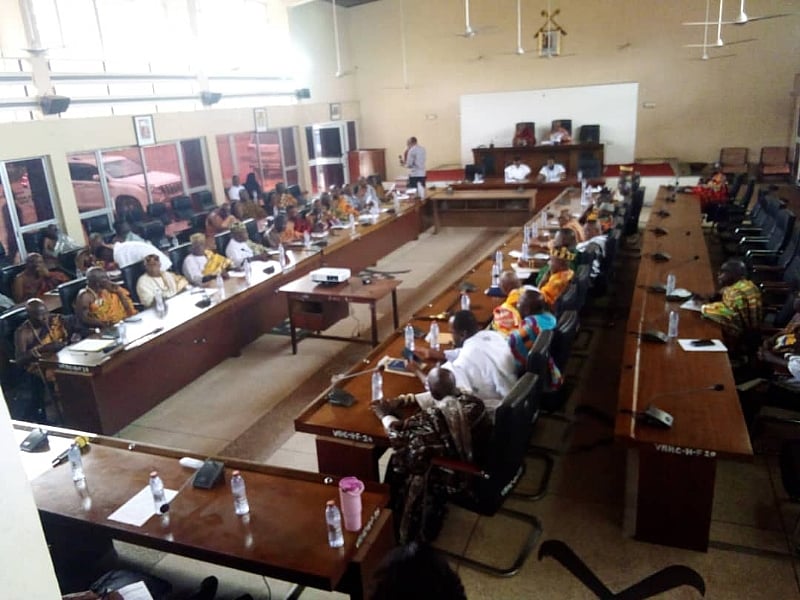Ghana’s fight against illegal mining, locally known as “galamsey,” is a complex challenge requiring a multifaceted approach that addresses the root causes, strengthens regulatory frameworks, and fosters community involvement. The government, recognizing the urgency and scale of the problem, is implementing a series of interventions designed to curb the destructive practice and promote responsible mining. These interventions encompass legal reforms, technological advancements, community engagement, and enhanced enforcement mechanisms. The ultimate goal is to protect Ghana’s natural resources, safeguard public health, and ensure that mining activities contribute positively to the nation’s socio-economic development.
One crucial aspect of the government’s strategy involves revising existing mining laws to enhance regulatory oversight and close loopholes that facilitate illegal operations. This legal overhaul aims to create a more robust and transparent framework that clearly defines permissible mining activities, strengthens licensing procedures, and imposes stricter penalties for violations. Complementing these legal reforms is the deployment of technology to monitor and control mining equipment. The initiative to track excavators nationwide using GPS technology represents a significant step towards preventing their unauthorized use in protected areas, such as forest reserves. A centralized control room, staffed by representatives from various government agencies, will monitor these trackers and coordinate responses to any detected infringements. This real-time tracking system, supported by inter-agency collaboration, is expected to significantly enhance the government’s ability to detect and prevent illegal mining operations.
In addition to regulatory and technological interventions, the government is also focusing on formalizing the operations of small-scale miners, many of whom currently operate illegally. The Cooperative Mining and Skills Development Programme, a key element of this strategy, aims to integrate these miners into a regulated system by organizing them into cooperatives. These cooperatives, comprising chiefs, youth, and women’s groups, will receive support and training to operate responsibly and sustainably. They will also be provided with access to modern processing plants that utilize environmentally friendly technologies, eliminating the use of harmful chemicals like mercury and cyanide. This approach not only promotes responsible mining practices but also empowers local communities to participate in the mining sector and benefit from its economic potential.
The introduction of mercury-free processing plants offers a twofold advantage. Firstly, it significantly improves gold recovery rates, increasing the yield for miners and boosting their income potential. Traditional methods using mercury typically achieve recovery rates of only 40-60%, while the modern plants boast recovery rates exceeding 90%. This enhanced efficiency makes legal, regulated mining a more attractive proposition for small-scale miners, potentially discouraging them from engaging in illegal activities. Secondly, the use of these environmentally friendly plants drastically reduces water pollution, a major concern associated with illegal mining. The plants treat wastewater before discharge, minimizing the harmful impact on rivers and other water bodies. This contributes to the protection of aquatic ecosystems and safeguards public health.
While the government is focusing on implementing these preventative and reformative measures, it also recognizes the need for robust enforcement. The National Anti-Illegal Mining Task Force will intensify its operations to prevent mining in forest reserves and other protected areas. This involves increased patrols, surveillance, and swift action against offenders. The government acknowledges that effective enforcement is crucial to deter illegal mining and ensure the success of its other interventions. However, enforcement alone is not sufficient; it must be accompanied by community engagement and education to foster a sense of shared responsibility in protecting natural resources.
The success of these interventions hinges on the active involvement and support of traditional leaders and local communities. Togbe Tepre Hodo IV, President of the Volta Regional House of Chiefs, welcomed the government’s initiatives but emphasized the need for stronger action against offenders and meaningful community participation in the reform process. He highlighted the devastating consequences of illegal mining, particularly the health risks associated with mercury use. He called for strict penalties and rigorous enforcement of existing regulations to break the cycle of inaction. He also stressed the importance of incorporating the lived experiences and knowledge of traditional leaders and communities into policymaking. This participatory approach is crucial for ensuring the long-term sustainability of the mining sector and safeguarding the well-being of affected communities. Ultimately, a collaborative effort involving the government, traditional authorities, local communities, and other stakeholders is essential to effectively combat illegal mining and build a responsible and sustainable mining future for Ghana.


